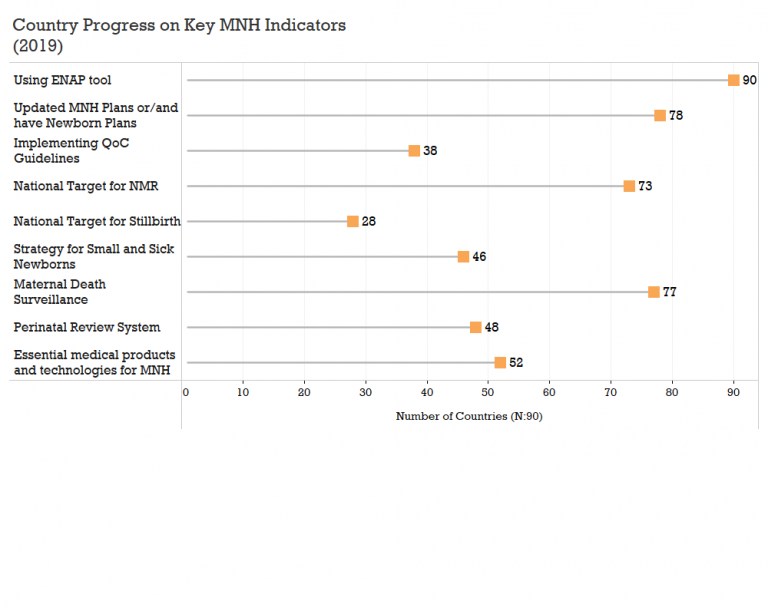By Najaf Zahra and Olive Cocoman
Preventable newborn deaths and stillbirths continue to be a global threat, especially amid COVID-19. What is being done to close the gap between the ratio of newborn deaths to the amount of live births within each country? How can preventability measures remain priority during the pandemic? What are some positive changes that have occurred within the past year to get us closer to our goals? Are there hurdles from recent years that we still need to overcome?
The Every Newborn Action Plan (ENAP) is a comprehensive, multi-partner initiative, launched in 2014, from which we can work during this exceptional times. ENAP calls on all stakeholders to take action to improve access to services and the quality of care for all pregnant women and newborns. ENAP, endorsed by 194 countries at the World Health Assembly in 2014 (Resolution WHA67.10) is a roadmap for action and it charts the path towards ending preventable newborn mortality, reducing disability and ending preventable stillbirths. The latest Every Newborn Progress Report presents results based on the Every Newborn tracking tool, completed by 90 countries. As we look at the findings, a crucial statement remains true: we must all continue the fight and maintain our efforts to protect the world’s most vulnerable population.
Key Findings from the Every Newborn Progress Report 2019
- 90 countries reported to the Every Newborn tracking tool in 2018, up from 74 countries in the previous year, showing a continuous increase in countries reporting (previously 51 in 2016; 18 in 2015; 10 in 2014). There were three new countries reporting on ENAP progress this year: Botswana, Cambodia, Lao PDR.
- 78 countries have completed the preparation of a newborn action plan or have updated the maternal and newborn components of a relevant RMNCAH Strategy.
- 73 countries reported a national target for NMR; the progress on stillbirth continues to lag behind with only 28 countries having a target from stillbirth.
- 38 countries have a national plan to implement the Quality of Care guidelines and standards. Almost all countries with the highest numbers of newborn deaths have done so, but accelerated progress is needed in countries with the highest rates of newborn mortality.
- 46 countries reported increased national guidelines or strategies for the care of small and sick newborns, in line with the growing global focus on the care of small and sick newborns to accelerate NMR reduction.
- 52 countries have included the eight essential medical products and technologies for maternal and newborn health in the National Essential Medicines List.
Without intentional efforts to mitigate the impact of COVID-19 on MNH services, countries stand to lose the hard-won gains made in recent years. Since the start of the pandemic, the already active Every Newborn Country Implementation Group has used its regular meetings as a space for the cross-fertilization of ideas and best practices in response to COVID-19 and elevated country-specific needs. Regional efforts have been at the forefront, supporting country responses by sharing the latest information on MNH and COVID-19, as well as providing platforms for south-south learning exchange.
Learn more about the response in Africa, Asia and the Middle East from WHO and UNICEF regional experts.
